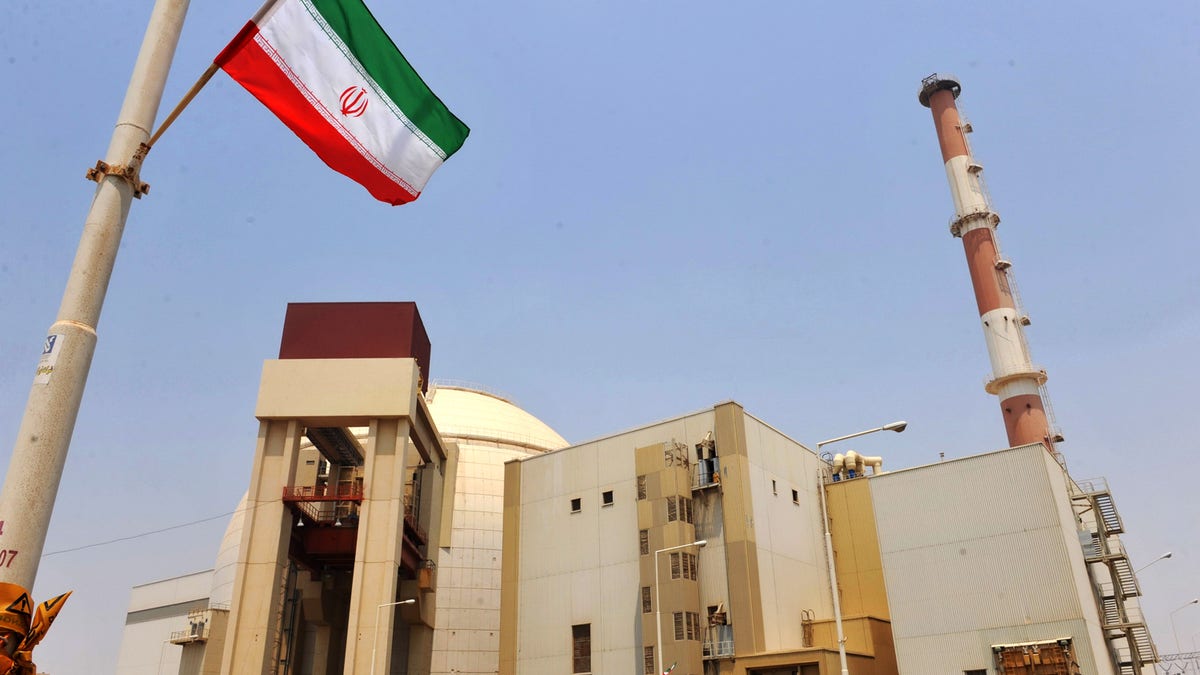Fox News Flash top headlines for Nov. 14
Fox News Flash top headlines for Nov. 14 are here. Check out what's clicking on Foxnews.com
An Iranian businessman charged with exporting tons of carbon fiber, a controlled substance with military and nuclear uses, from the U.S. to Iran was sentenced to nearly four years in prison Thursday, the Justice Department announced.
Behzad Pourghannad was extradited from Germany to face charges in July. He was charged with violating U.S. sanctions by circumventing export controls on carbon fiber, according to U.S. Attorney Geoffrey Berman of the Southern District of New York. Pourghannad pled guilty to the charges in August.
Carbon fiber can be used to make nose cones for long-range missiles and can be used to manufacture rotors in the centrifuges that enrich uranium.

BUSHEHR, IRAN - Nuclear power plant. (Photo by IIPA via Getty Images) (2010 IIPA)
Iran in recent months has made numerous announcements that it would be violating international agreement to use advanced centrifuges to enrich uranium and increase its nuclear stockpile.
IRAN ENRICHING URANIUM AT 'NOT DECLARED' SITE, UN NUCLEAR WATCHDOG SAYS
A United Nations nuclear watchdog revealed Monday that Iran is making good on that promise. Uranium of a man-made origin was found at a site not declared to inspectors.
According to the announcement, Pourghannad and his co-conspirators, Ali Reza Shokri and Farzin Faridmanesh, lived and worked in Iran between 2008 and 2013. During that time they worked together to obtain the carbon fiber from the United States and secretly export it to Iran through third countries. Shokri procured the carbon fiber, Pourghannad served as the financial guarantor of the transactions and Faridmanesh served as the shipper. In the 2013 transaction alone, Pourghannad and Shokri negotiated for the purchase and shipment of more than five tons of carbon fiber to Iran by way of the nation of Georgia.
Faridmanesh labeled the carbon fiber “acrylic” to sneak by U.S. export controls.
The DOJ did not specify how much of the carbon fiber actually made it to Iran, or what would become of co-defendants Faridmanesh and Shokri.
CLICK HERE FOR THE FOX NEWS APP
The case is being handled by the office's Terrorism and International Narcotics Unit, along with the Counterintelligence and Export Control Section of the National Security Division.

